Your twenties are often glorified as ‘the best years of your life’. A time of freedom, exploration, and endless possibilities.
Yet for the current generation of 20-somethings, it seems like this decade is bringing us more existential dread than it is carefree adventure.
This is why the term “quarter-life crisis” has become popular in the last few years. But what is this phenomenon?
Dictionary.com defines it as “a crisis that may be experienced in one’s twenties, involving anxiety over the direction and quality of one’s life”.
This is a pretty sanitized definition.
It doesn’t quite capture the agony of the decade; the feeling of not meeting your potential, hating your job, struggling to support yourself, and constantly comparing your “ordinary” life to the “perfect” lives of your peers.
In general, the growing pains of transitioning from childhood to adulthood is not unique to Millennials and Gen Z.
Our parents, their parents, and their parents experienced this as well. But every new generation of adults inherit their own set of world struggles.
For us, we must confront astronomical housing costs, mounting school debt, diminishing returns on high education, and an uncertain job market.
Add to this the 24/7 stream of global catastrophes and the pressure of social media’s carefully curated success stories, and it’s no wonder many of us feel overwhelmed or even depressed.
This disconnect between expectation and reality has become the defining feature of the modern 20-something experience.
Are we completely doomed then? Is there any way out of this seemingly hopeless situation?
While we cannot control the external factors shaping our world, we can choose how we respond to them. This period of uncertainty and even despair, though challenging, is fertile soil for personal growth and self-discovery.
In seeking to understand and navigate my own quarter-life crisis, I found unexpected wisdom in an unlikely source: cinema. I watched 3 films that I had enjoyed as an idealistic teenager, but did not truly understand until I revisited them as a disillusioned adult.
The following analysis explores an important lesson I learn from each film. I will also go into how you too can implement this wisdom and work towards overcoming your own quarter-life crisis.
The Graduate: Understanding What Motivates Your Decisions
Let’s rewind to 1967, when post-grad anxiety hit the silver screen with The Graduate. Despite being almost sixty years old now, the movie’s portrayal of the quarter-life crisis is timeless.
Meet Ben Braddock, a fresh college grad with a prestigious degree and a long list of achievements that could land him a job anywhere. Yet he’s profoundly lost.
He has perfectly followed his parents’ plan for his life, but why does he feel like he’s drowning?
At his graduation party, he confides in his father about wanting his future to be “different”, but his dilemma is easily dismissed. After this attempt of vulnerability, he is swiftly thrown into the oppressive crowd of his parents’ friends and associates so he can be paraded as a trophy.
Despite his education, the 21-year old Ben remains essentially a child who has never made any significant independent choices.
Then comes the choice that changes everything: Mrs. Robinson, the ultimate representation of a repressed and unsatisfied rich woman, propositions him.
Ben is obviously unskilled at making his own sound decisions. So what drives him to say yes?
Let’s start with what is consciously motivating him. First, there is lust. He’s a young man with little experience with women. It’s not shocking that he would say yes to the first woman to overtly seduce him.
The second factor is his desire for excitement in his boring, planned-out life. Third, he’s realizing how stifling his parents’ and society’s expectations of him are, and wants to rebel and act in a way that transgresses societal norms.
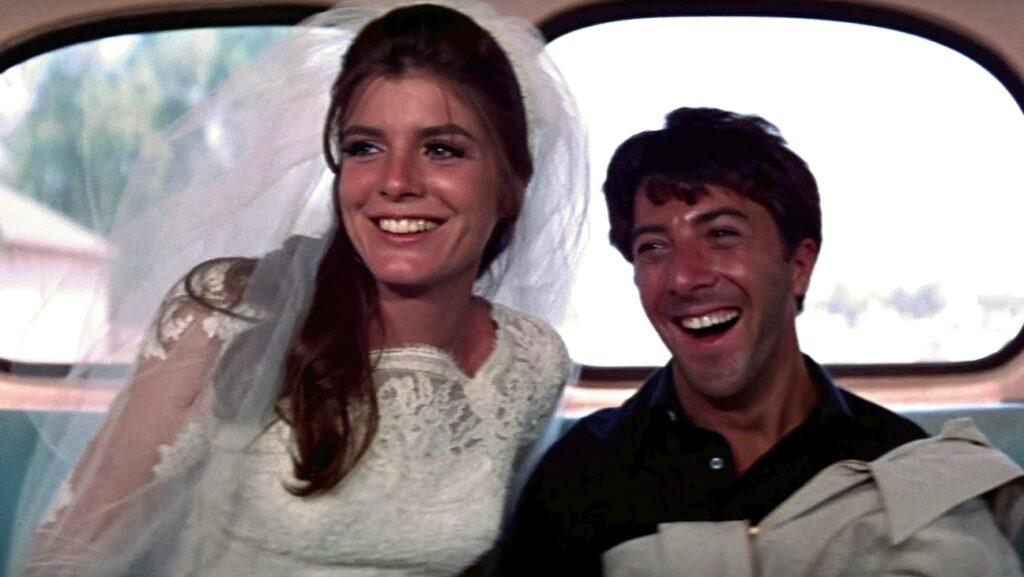
But this is just what he’s aware of. Could there be any motivations hiding under the surface?
Despite his intent to rebel against his parents, the main authority figures in his life, his need for validation only transfers over to a different authority figure, Mrs. Robinson.
Outside the surface-level sexual attraction, it’s likely that the un-even power dynamic is also part of what seduces him.
The affair also acts as a distraction for him to postpone the momentous decision of choosing his career path. Additionally, he may have an unconscious desire to sabotage the “perfect” life that’s been built for him altogether.
Like most avoidance strategies, his fling with Mrs Robinson only deepens his emptiness. His days dissolve into a meaningless routine: floating listlessly in the pool, followed by nights of hollow sex in hotel rooms.
Meeting Elaine, Mrs. Robinsons’s daughter, marks a turning point.
For the first time, Ben encounters someone who shares his generational crisis. His impulsive declaration of love, though premature, represents his first authentic emotional response.
Their connection is immediate and electric but quickly crumbles once the affair is revealed.
Ben’s solution to this mess is gloriously impulsive: he decides to marry Elaine. Never mind that she currently hates him, or that he hasn’t actually proposed.
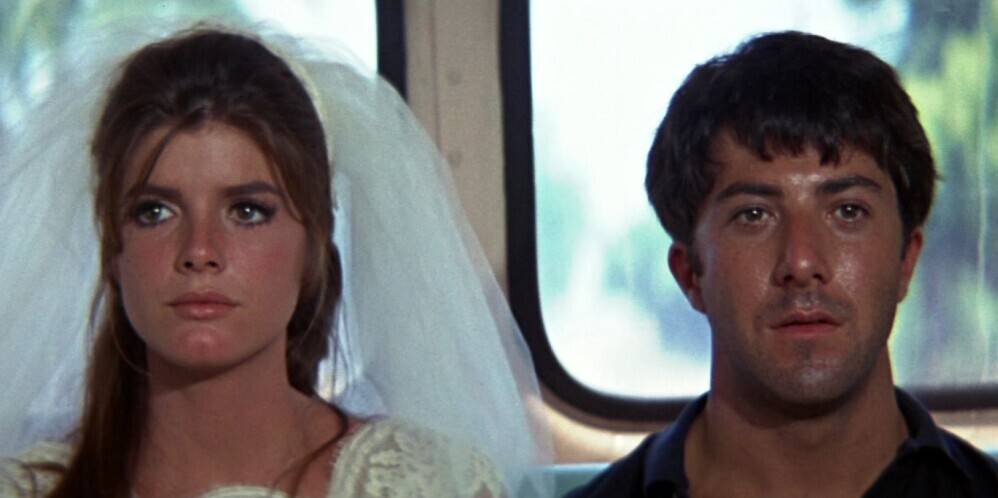
What follows is the film’s iconic climax – Ben racing against time to stop Elaine’s wedding, culminating in that unforgettable scene of the young lovers escaping on a bus, their faces shifting from exhilaration to the slow dawning of “what now?”
This is when both Ben and Elaine truly become adults, as they realize the gravity of their actions and that they cannot be reversed.
Two sheltered wealthy children have now lost all family support, emotionally and financially. How are they supposed to survive with no shelter, no income, or money of their own?
Their Romeo and Juliet story does not end with them dying, but instead having to live with the consequences (good and bad) of their actions.
The journey of Ben Braddock illuminates the complex nature of decision-making in early adulthood and reveals how our decisions are shaped by a delicate interplay between conscious and unconscious motivations.
What we tell ourselves about our choices often masks deeper psychological drives.
Our relationship with our parents also casts a long shadow over our decision-making process. We tend to go one of two ways: Diligently follow the path our parents laid out or relentlessly rebelling against parental expectations.
True independence is making choices neither in blind compliance with nor pure defiance of our parents’ wishes.
In life there are no perfect decisions, all we can do is try to make the best choices we can. This is the true journey into adulthood, the willingness to own our choices and grow from their consequences.
So the next time you need to make a big decision, try asking yourself these questions first:
- What’s really driving this decision?
- Am I running toward something or away from something?
- What patterns do I keep repeating in my decisions?
- Does this decision align with my actual values, or someone else’s?
- Can I live with the consequences?
Office Space: Taking Personal Accountability
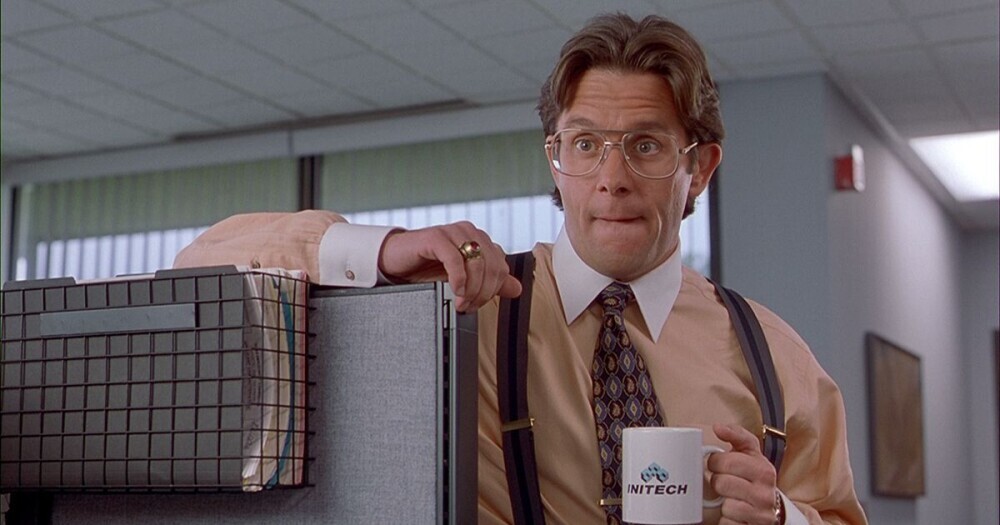
Since the release of Office Space in 1999, our phones have become smarter and our computers faster, yet the soul-crushing reality of office life remains stubbornly unchanged.
This is another essential film for any 20-something who is unsatisfied with their life.
Our protagonist, Peter Gibbons, hates his job.
He makes this confession at the beginning of the film: “Ever since I started working, every single day of my life has been worse than the day before it”.
He shuffles through existence, dominated by his passive-aggressive boss, Bill Lumbergh. Peter can’t even muster the courage to say no to weekend work.
He feels completely powerless in his job and his life.
Peter knows he’s just another cog in the corporate machine, as disposable as yesterday’s TPS reports. He also has a sneaking suspicion that his girlfriend is cheating on him but will not confront her.
Peter exemplifies how many of us live: stuck in a cycle of excuses and passive acceptance. He endures traffic jams, navigates the demands of eight different bosses, and works “just hard enough to not get fired”, all while letting life happen to him rather than taking charge of his circumstances.
Then comes Peter’s glorious first transformation.
After a hypnotherapy session goes hilariously wrong, Peter is liberated from all “worries, cares, and inhibitions” and embraces a carefree existence.
He leaves his girlfriend and starts a new relationship with the waitress he’s been pining for.
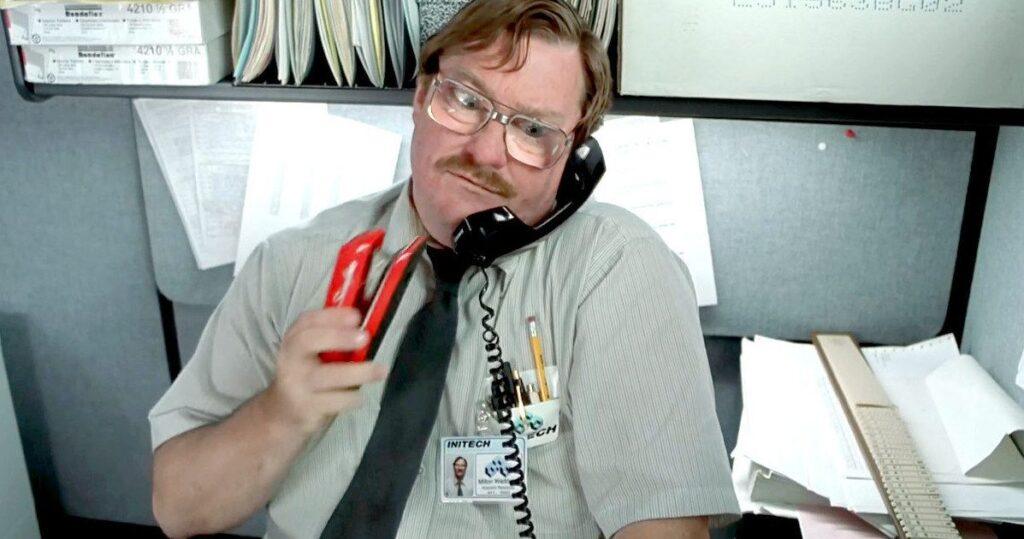
He also turns into a corporate rebel. Peter sleeps in, skips work, and when he does show up, he’s using his cubicle as fish filleting station.
Initially, this newfound freedom feels intensely liberating as he breaks free from his former patterns of misery and starts taking control of his life, leading to positive changes in both his confidence and overall happiness.
However, Peter’s “do whatever I want” attitude soon reveals the complex realities of adult life. Complete freedom without responsibility is unsustainable, as actions have ripple effects that impact both ourselves and those around us.
This becomes evident when Peter’s work antics ironically leads to his career advancement, while his hardworking friends who played by the rules face layoffs.
This turn of events demonstrates how personal choices can have unintended consequences for others.
Frustrated by this situation, Peter misidentifies the corporation as the root of all problems and devises a scheme.
He convinces Michael and Samir to join him by riling up their feelings of betrayal after being laid off, presenting the embezzlement plan as justified revenge against an unfair system.
A crucial element of Peter’s self-justification also lies in the perceived harmlessness of his plan.
By designing the theft around tiny fractions of pennies from each transaction, Peter convinces himself that his actions won’t truly hurt anyone. He frames it as a victimless crime against a faceless corporation, ignoring that stealing is still wrong regardless of the amount or the target.
Unsurprisingly the plan goes wrong.
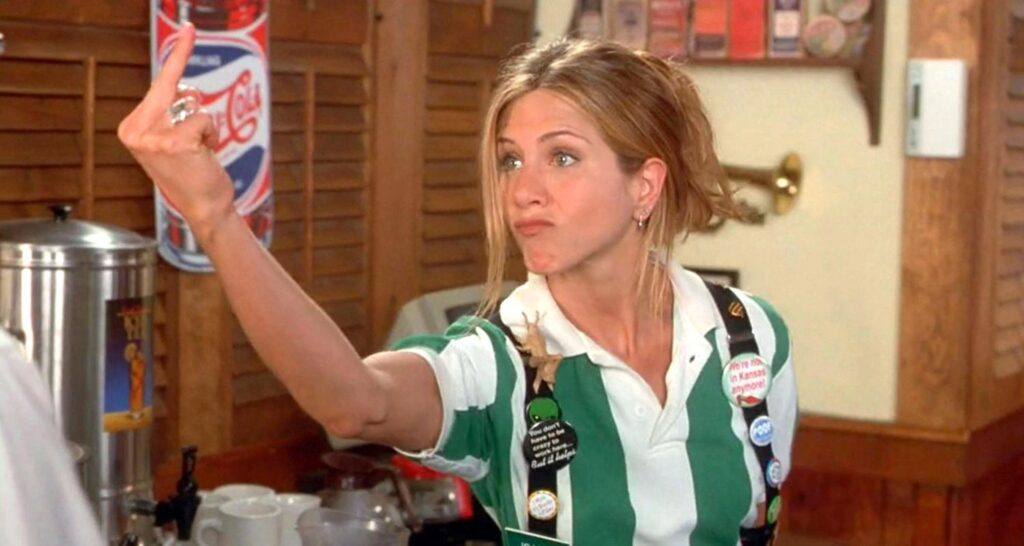
Samir then confronts Peter and declares that he is “a very bad person” for roping them into his scheme. This comment haunts Peter and motivates his final transformation of the film.
He takes full accountability for the crime in a confession letter. Luckily for the three of them, another disgruntled employee burns down the entire workplace along with the letter and all evidence.
The film ends with Peter in a more fulfilling job as a construction worker, getting exercise and enjoying the outdoors.
Office Space delivers a profound message about personal responsibility and the complex balance between individual fulfillment and our impact and responsibility towards others.
While Peter’s initial frustrations with corporate culture and workplace monotony are understandable, his journey teaches us that responding to life’s unfairness with dishonesty only creates bigger problems.
Moreover, his habit of blaming external forces — his job, his boss, and the system itself–for his circumstances, only feeds a growing resentment.
While these institutions and individuals may indeed be flawed, using them as scapegoats for our own actions prevents us from growing and creating a truly meaningful life for ourselves.
This resentment ultimately makes us victims of our own narrative rather than agents of positive change in our lives.
The film’s resolution suggests that true fulfillment comes from finding honest ways to align our personal desires with our responsibilities.
So if like Peter, you feel stuck in your job or life, try asking yourself these questions:
- What aspects of my situation can I actually control or change?
- What’s stopping me from making changes – real obstacles or fear?
- Does my current path align with my personal values?
- How are my relationships being affected by my current state?
Frances Ha: Accepting Your Individual Journey
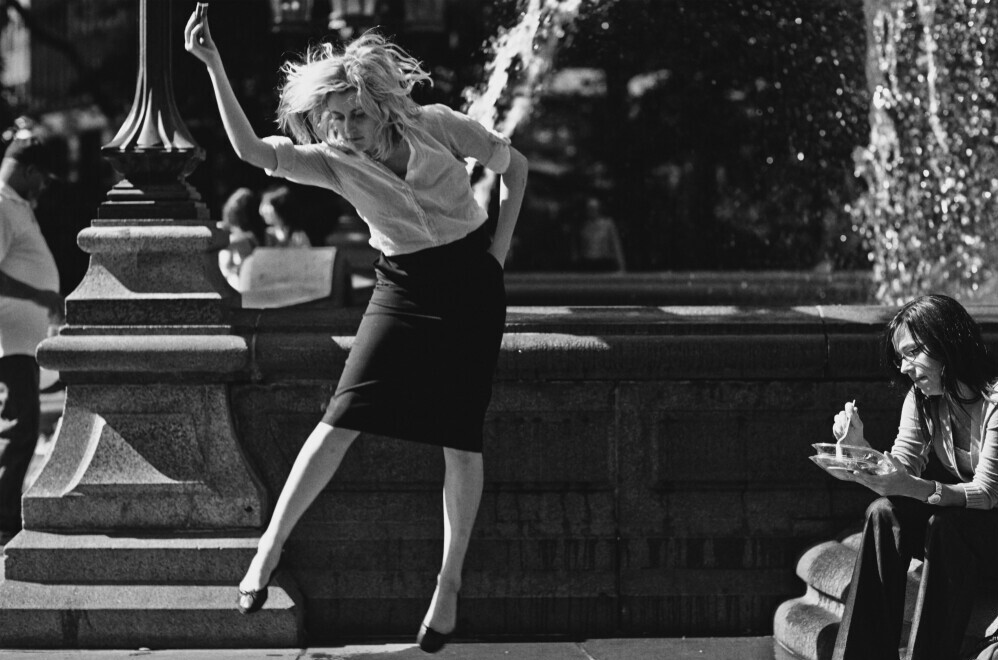
The most recent film on this list, 2012’s Frances Ha, perfectly captures how chaotic and unpredictable navigating your 20’s can be.
Unlike Ben and Peter, Frances Halladay has a crystal-clear vision of her future: she’s going to be a renowned dancer, with her best friend Sophie documenting her inevitable rise to stardom.
But life, as it often does, has other plans.
Despite her passionate dedication, Frances finds herself stuck in the unglamorous reality of apprenticing at a struggling dance company while teaching children’s classes to make ends meet.
Throughout the film, the protagonist’s sense of falling behind her peers grows increasingly acute with each new encounter.
The first crack in her confidence appears when Sophie “dumps” her.
She abandons their shared apartment to move into an expensive Tribeca neighborhood with Lisa – a girl Sophie doesn’t even like, but can tolerate in order to live in her dream apartment.
From the outside, Sophie seems to have it all figured out. Frances on the other hand, is unable to pay rent with her income alone, and briefly moves in with two seemingly sophisticated artists.
She’s initially impressed by their artistic pursuits- Lev’s sculpture work and Benji’s aspirations of writing for SNL – but Sophie brutally punctures this illusion with a harsh truth: they aren’t struggling artists, they’re trust fund kids playing at being bohemian.
When Frances anxiously discusses her inability to make rent and her growing financial crisis with Benji, he casually mentions hiring a maid for $400 a month – nearly half of Frances’ rent.
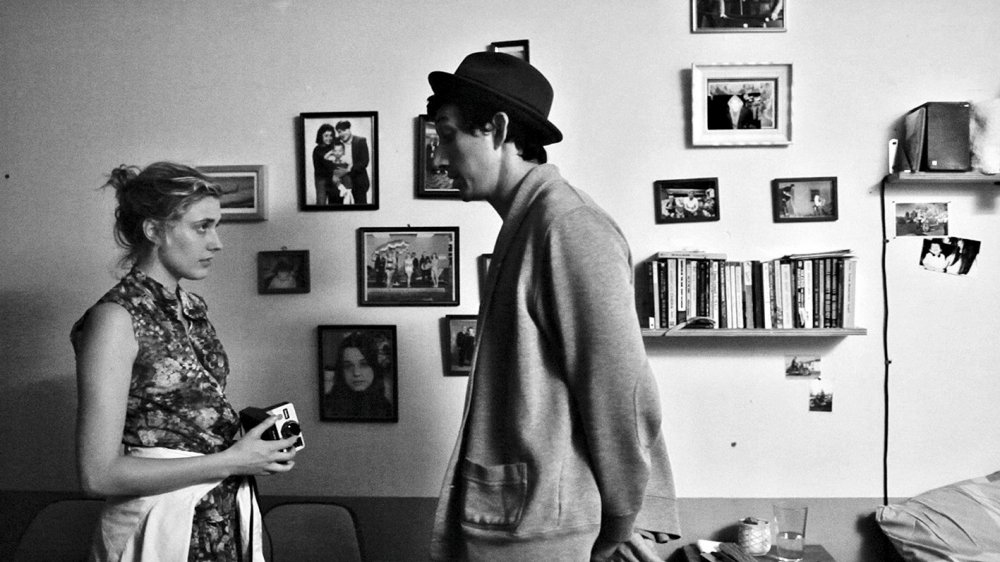
This moment crystallizes the vast gulf between Frances’s genuine financial struggles and the performative “poverty” of Benji, who can afford to romanticize the struggling artist lifestyle while having a safety net she lacks.
Often the apparent successes of others come from hidden advantages – family wealth, social connections, or other privileges that aren’t immediately visible (or revealed) to an outsider.
As Frances navigates her life in New York, she’s constantly bombarded with glowing praise about Sophie from their mutual acquaintances.
This steady stream of comparisons chips away at her confidence, especially when one woman delivers a particularly cutting observation: that Frances looks a lot older than Sophie yet is somehow less grown-up.
These comments sting as Frances watches Sophie effortlessly achieve traditional milestones – career advancement, engagement, international moves – while she feels like she’s going backwards.
In a desperate attempt to prove she too can have sophisticated adventures like Sophie, Frances impulsively flies to Paris on credit – a perfect representation of how we sometimes make poor decisions when trying to keep up with others’ seemingly perfect lives.
Back from Paris, Frances receives bad news.
Her dance company does not offer her the permanent dancing position she’d hoped for. Instead, they present her with an office job that includes opportunities to choreograph – a role she rejects because it doesn’t match her vision of becoming a professional dancer.
She is unable to see that life might be offering her a different but equally valuable path.

With nowhere else to turn, she takes a summer job at her old college. She feels like she’s hit rock bottom, returning to student life when she should be advancing in her career.
It’s here, however, that the story takes an unexpected turn.
She runs into Sophie, whose seemingly perfect life has completely unraveled.
Their reunion becomes a turning point for both women as they realize that life’s unpredictability affects everyone – even those who appear to have everything figured out.
Sophie’s confession about always feeling competitive with Frances reveals how both women have been trapped by their narrow definitions of success and their reluctance to deviate from their planned paths.
Frances’s journey ultimately demonstrates that while having clear goals is important, being open to life’s detours and alternative opportunities can lead to unexpected fulfillment.
Her summer at the college, initially seen as a step backwards, gives her the perspective to reconsider the choreography opportunity she had dismissed.
The film illustrates how the age-old saying “comparison is the thief of joy” rings painfully true – whether we’re measuring ourselves against our friends, social media influencers, or even the version of ourselves we imagined we’d be by this age.
True fulfillment comes from honoring our own journey, with all its messy detours and unexpected turns. While also remembering that everyone is navigating their own complex path – one that’s equally filled with hidden challenges, private doubts, and personal battles we may never see.
If you too feel like your “behind” in life, try asking yourself these questions:
- Are the goals I’m pursuing truly mine, or am I chasing someone else’s definition of success?
- How can I reframe my “setbacks” as valuable experiences?
- What opportunities am I missing because I’m too focused on what I “should” be doing?
- How can I make my unique path work for me instead of against me?
Transforming a Crisis into a Catalyst for Growth
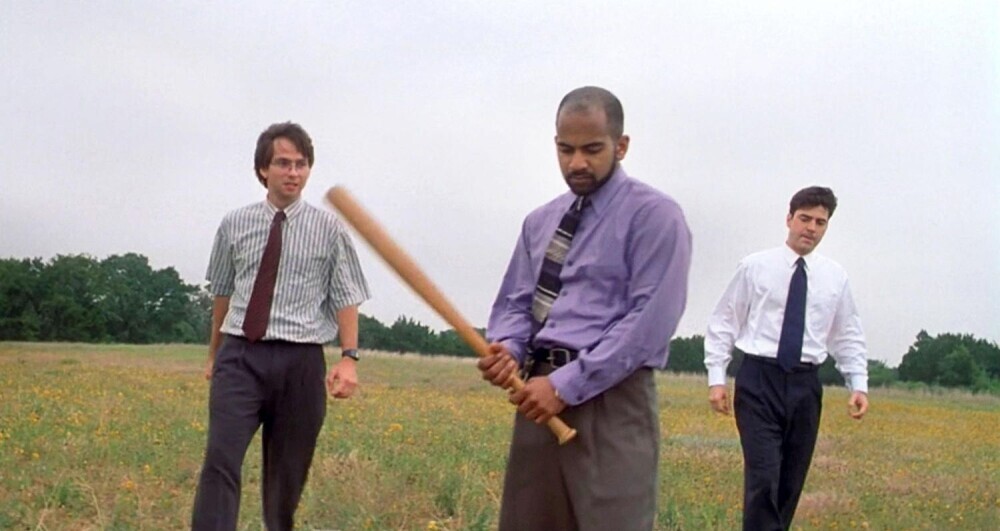
The quarter-life crisis, while daunting, offers valuable opportunities for growth and self-discovery. As these three films demonstrate, the challenges of our twenties often lead to essential life lessons.
The Graduate teaches us to question our true motivations rather than blindly following or defying others’ expectations.
Office Space shows us that taking responsibility for our circumstances, rather than blaming the system, is key to creating meaningful change.
Frances Ha reminds us that comparing our journey to others only breeds unhappiness. Success looks different for everyone.
While today’s 20-somethings face unique challenges, from student debt to economic uncertainty, this period of questioning and confusion serves a purpose. Use your crisis as an opportunity to define success on your own terms and discover who you truly want to become.
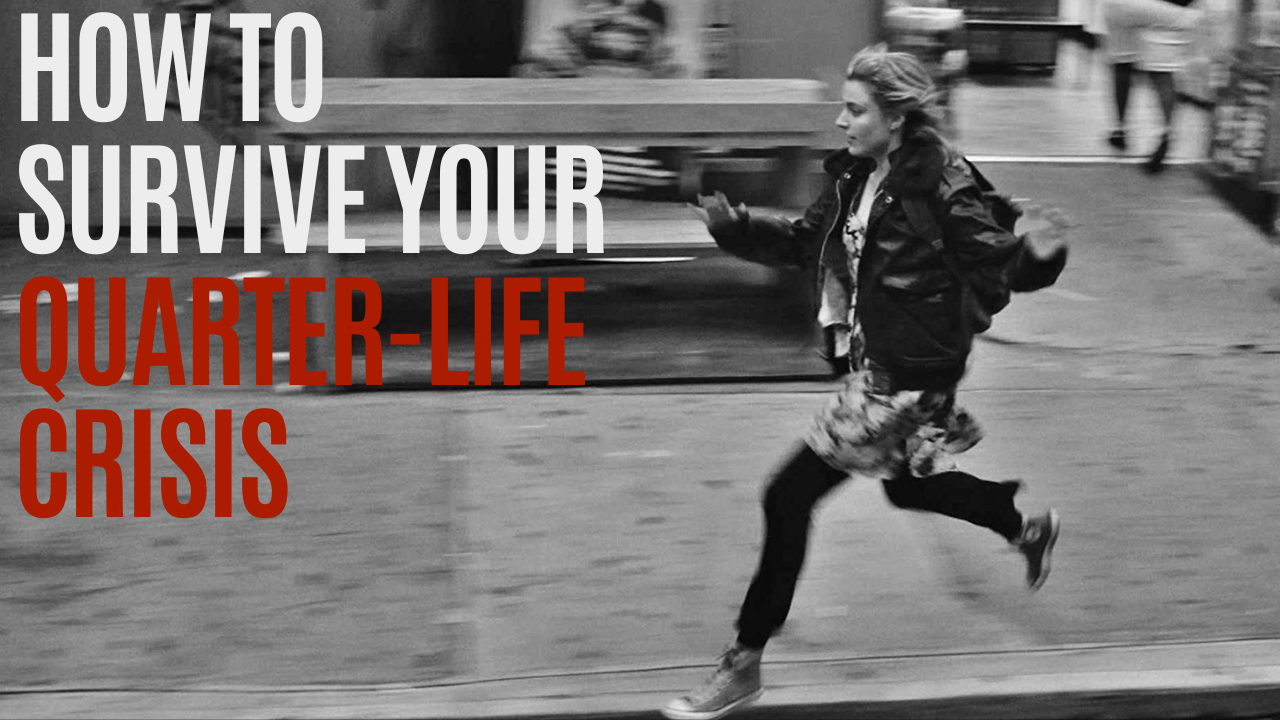
Leave a Reply